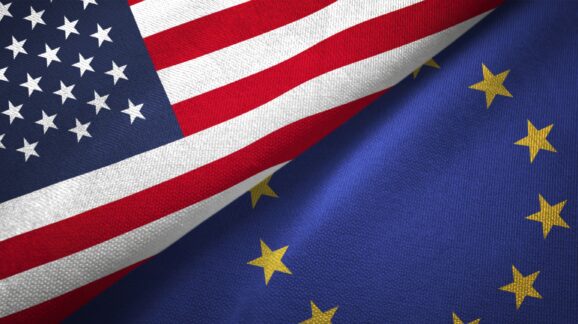FCC wants European-style broadband regulation, would throttle American consumers

Photo Credit: Getty
Aristotle said that nature abhors a vacuum so that every space in nature must be filled. Apparently, the FCC has taken inspiration from ancient Greek philosophy. It perceives a vacuum of authority over broadband that must be filled by Title II common carrier regulation, which is regulation similar to that in the EU.
The underlying thesis for the FCC’s NPRM is that Title II authority is necessary because “there is no expert agency ensuring that the Internet is fast, open, and fair.” The FCC maintains that the public interest compels it to fill the vacuum. That national security and public safety compel it to fill the vacuum.
This effort comes despite the success of the US’s high capacity and resilient broadband networks. It disregards the succession of speed increases, often at no additional cost, that US consumers have enjoyed for years. And it overlooks that consumers have for years accessed and streamed content from any lawful provider of their choosing.
As Commissioner Brendan Carr pointed out, there already exists considerable national security authority and expertise in the federal government, and the FCC applies the Communications Assistance for Law Enforcement Act (CALEA) for public safety.
But the FCC abhors its perceived authority vacuum and is determined to fill it.
Another ancient Greek, Hippocrates, admonished to first do no harm. While the US Internet is already “fast, open, and fair,” the facts show that European style regulation would harm the consumer experience with lower speeds, less deployment and lower adoption rates.
According to the Speedtest Global Index, fixed US broadband networks outperform every single European country on speed. Greece, the land of Aristotle and Hippocrates, ranks 101st on the index, behind countries such as Mongolia, Uzbekistan, and Kyrgyzstan.
A 2020 USTelecom study compared the US with the EU. It showed the US leading Europe in deploying high speed internet infrastructure and in consumer adoption. For fixed broadband, the US is ahead of Europe with 25% more households covered at greater than100mbps and 11% more households covered at greater than 30mbps. The study also revealed that there was two times more facility-based competition in the US than in the EU. US internet service providers continue to develop even faster networks, as evidenced by the industry’s deployment of 10G.
As for adoption, the USTelecom study shows the US leading at any speed. At higher speeds, 55% of connected US households subscribed at 100mbps and above whereas 34% of connected subscribers in the EU subscribed at 100mbps and above.
In addition to stronger deployment and adoption, the US has not suffered from the well-documented throttling that was imposed in Europe during the pandemic to ensure that the internet didn’t “break.” It is not open and fair for consumers to have traffic from their favorite streaming provider throttled at the request of government officials.
It’s therefore clear that US consumers receive higher quality, higher speeds and a commensurately higher broadband experience.
Aristotle also said, “Whatever lies within our power to do lies also within our power not to do.” The application of European style regulation is an unnecessary choice, and the FCC has the power not to do it. Rather than embracing an underperforming regulatory regime to fill a perceived authority vacuum, it should allow the current successful approach to continue.
That would first do no harm.